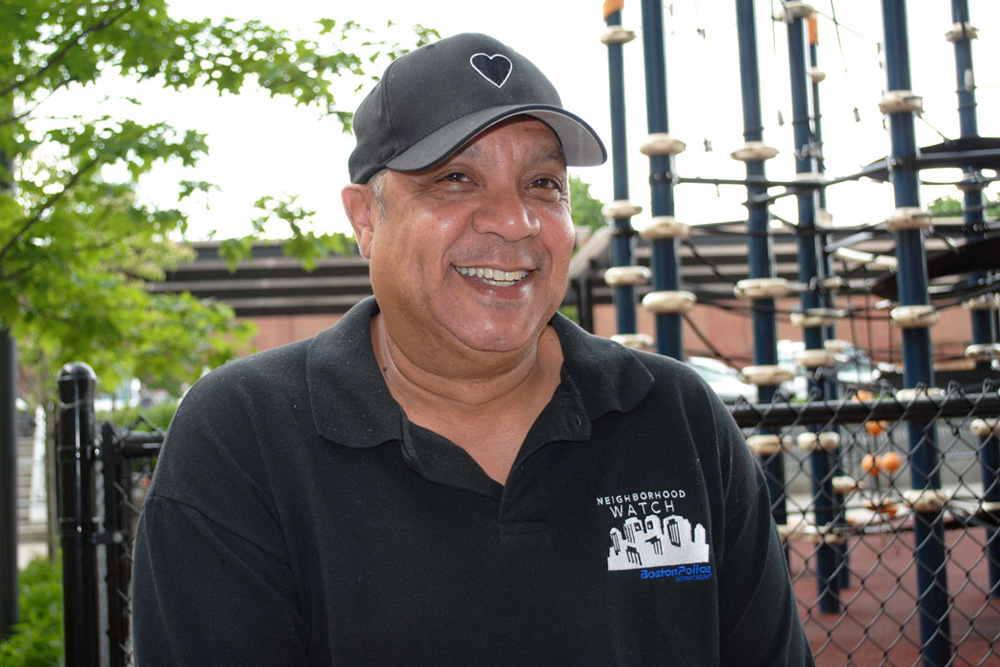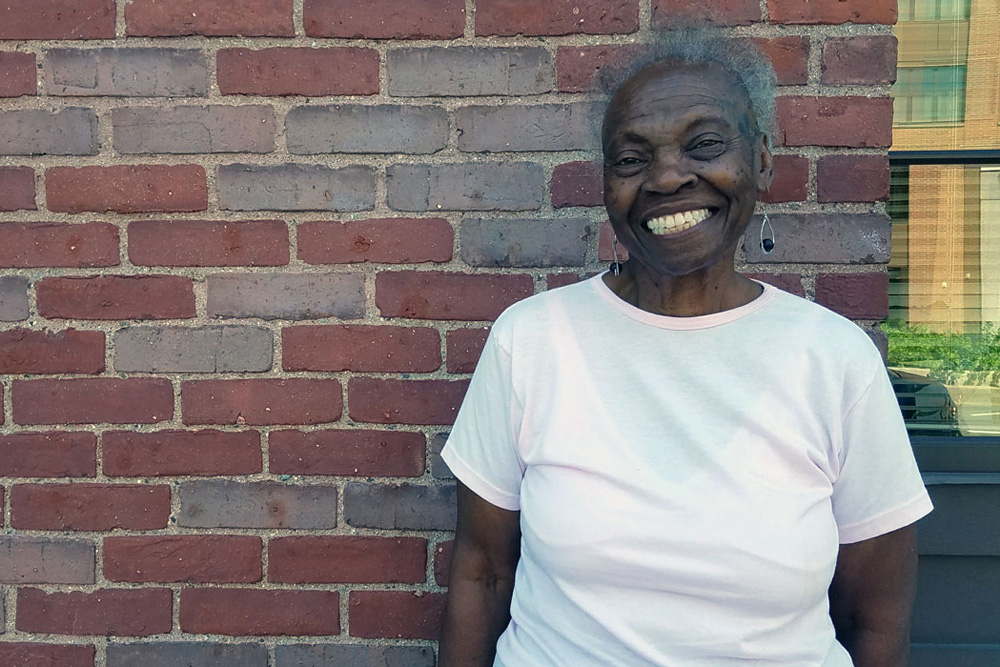“I was finishing up some intense finals studying in the law library, and I walked by an event,” she says. “It turned out to be an internship fair, so I stopped in and started talking with the representatives from Historic New England.”
Stepping into the past
Historic New England was looking for a seasoned graduate student to take on an ambitious pilot project: collecting the oral histories of long-term residents in some of Boston’s first public housing developments. Working with staff from Urban Edge, an organization that manages several of the developments in Boston and provides services to the community, the Historic New England intern would interview several of the original residents of Academy Homes and Westminster Court.
Both developments were built in the 1960s to create affordable housing options in Boston’s Roxbury neighborhood. The residents have seen enormous urban and social change in the decades since — including school desegregation, a proposed highway expansion, and controversial “urban renewal” projects.
“Boston is a majority minority city. The stories we tell need to reflect that history,” says Ken Turino, Historic New England’s manager of community engagement and exhibitions.
“We weren’t looking for an undergraduate, but we were blown away by Helina,” says Turino. “She’s smart, open, willing to listen, and she’s not shy. We needed someone with poise who could ask difficult questions tactfully.”
Helina, with her natural curiosity, was the perfect fit.





